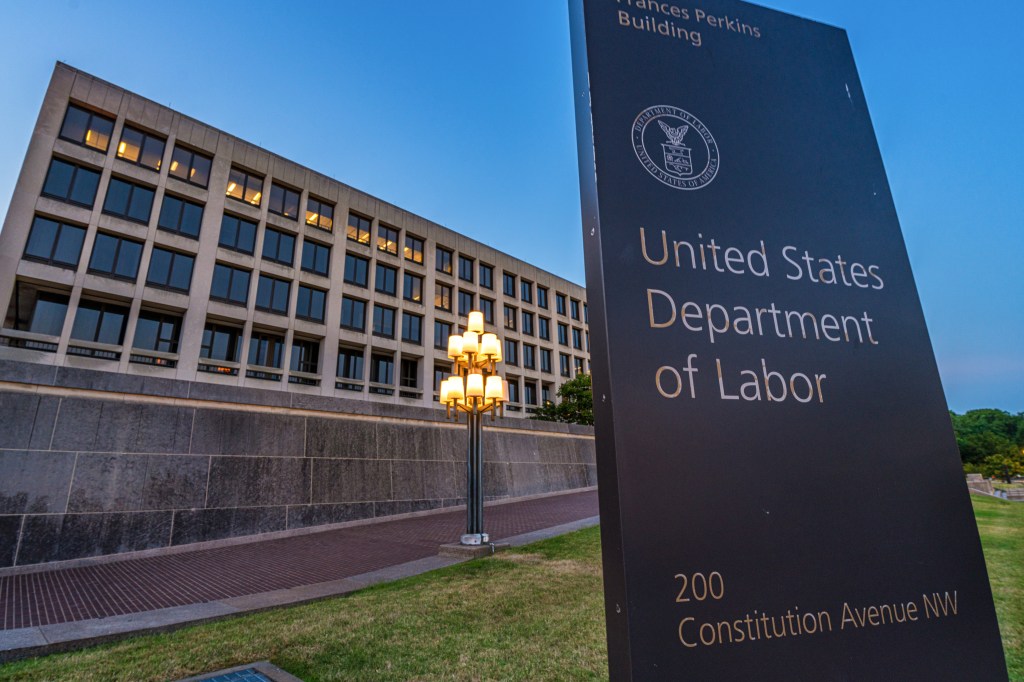A Texas district court will rehear a challenge to the Department of Labor’s (DOL’s) environmental, social and governance (ESG) rule for investing in defined contribution retirement plans. This comes after the US Fifth Circuit Court of Appeals remanded the case due to the recent Supreme Court decision overturning the Chevron deference doctrine.
In a ruling published on July 18, Circuit Judge Don Willett cited the Supreme Court overturning the longstanding Chevron standard, claiming that in initially upholding the DOL’s rule, the federal district court had relied upon the decades-old Chevron deference doctrine.
“Given the upended legal landscape, and our status as a court of review, not first view, we vacate and remand so that the district court can reassess the merits,” Willett wrote.
Supreme Court
This litigation has already been framed as a gauge as to how the Supreme Court’s June 28 decision overturning Chevron will affect federal agencies’ rulemaking abilities.
The decades-old doctrine required judges to defer to reasonable interpretations by federal agencies when statutes are silent or ambiguous.
Sending it back to a lower court means the case will be considered for a narrow ruling on whether the rule “can be squared” with the Employment Retirement Income Security Act of 1974 (ERISA) or the Administrative Procedure Act (APA). In the meantime, while it seeks the district court’s interpretation of whether the rule aligns with ERISA or the APA, the appeals court will keep the case on its docket.
Back to Texas
Shortly after the DOL’s Employee Benefits Security Administration finalized its ESG regulation, the GOP attorneys general filed their lawsuit. (A parallel Republican effort in Congress to overturn the rule with a Congressional Review Act measure prompted President Joe Biden to use his first-ever veto in 2023.)
Now that Chevron deference has been overturned, that ESG-as-tiebreaker issue is an open question for the court to decide.
The case is Utah v. Su, and it’s a bid by 29 Republican state attorneys general to block a 2022 DOL rule that allows for ESG factors to be considered when electing retirement plan investments. US District Court for the Northern District of Texas Judge Matthew Kacsmaryk ruled that the DOL acted within its authority under the APA in issuing the rule, and the state attorneys general appealed.
The Chevron doctrine was referenced and relied upon in the district court decision by the district judge, so it will be interesting to see how the judge interprets that legal question without fully relying on deference to statutory interpretation.
Deeper dive
The Department of Labor rule in question, “Prudence and Loyalty in Selecting Plan Investments and Exercising Shareholder Rights,” was finalized in 2022 and has been in effect since January 2023. The rule overturned guidance from the Trump Administration in 2020 that forbade fiduciaries from using “non-pecuniary” factors in investment decisions.
Basically, the rules issued by both the Trump and Biden administrations at DOL were fairly similar but included some key differences in wording.
For example, the Trump administration rule stated a fiduciary must consider pecuniary factors when determining what investments to include in a 401(k) plan. The Biden administration rule similarly said that rate of return needs to be the primary factor when deciding on an investment, but if there are two investments that are basically equal in terms of rate of return, a plan sponsor can consider ESG factors as a tiebreaker.
While ERISA does not mention considering other factors besides rate of return when making investment decisions, courts were previously bound to, under Chevron, defer to a reasonable agency directing fiduciaries to consider collateral benefits that are not related to the risk-return analysis when weighing different investment options in the event of a tie – meaning the ESG factors could serve as a tiebreaker.
Now that Chevron deference has been overturned, that ESG-as-tiebreaker issue is an open question for the court to decide.
But let’s not give undue weight to the doctrine here. The court might have that question to answer, and the district court judge mentioned Chevron in his decision, but the DOL did not invoke or rely upon the doctrine at all during its defense of its position.
Bringing back Chevron?
This week, 11 US senators introduced a bill designed to undo the Supreme Court’s ruling that overturned the Chevron doctrine.
Worried about regulations addressing issues including the environment, consumer protection and workers’ rights, Senator Elizabeth Warren (D-MA) and 10 fellow Democrats are sponsoring a bill that would codify into law the 40-year-old legal doctrine that had required courts to defer to federal agencies’ interpretations of the laws they administer when those statutes are ambiguous.
The Stop Corporate Capture Act would restore the doctrine and make a series of other changes that Democrats say would modernize and streamline the rulemaking process.
Warren in a statement said the bill would “make sure corporate interest groups can’t substitute their preferences for the judgment of Congress and the expert agencies.”
A similar bill backed by Rep. Pramila Jayapal (D-WA), is pending in the US House of Representatives. The bills have slim chances of passing in an election year in the Senate, which Democrats only narrowly control, or in the House, where the Republicans have a majority.
















